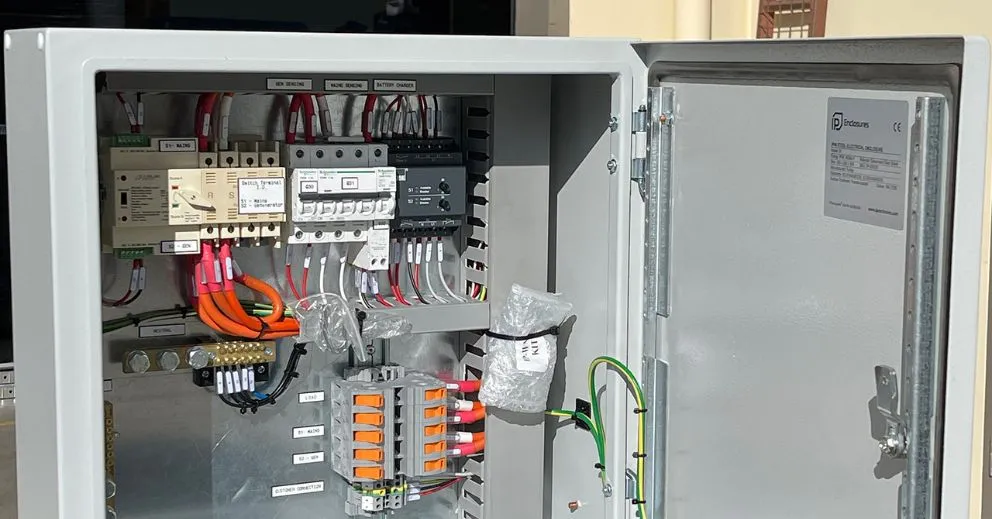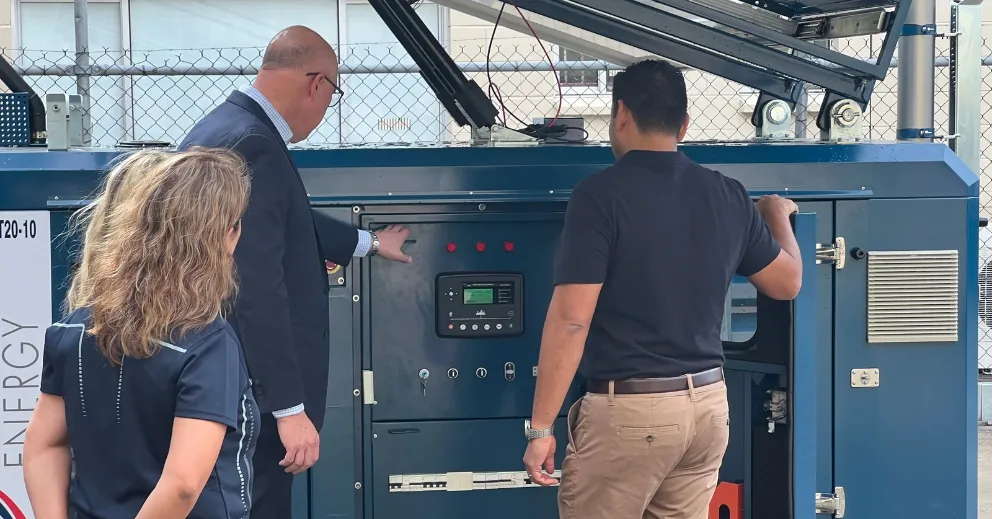How to Maintain a Diesel Generator: Tips for Longevity and Efficiency

Diesel generators are known for their durability and efficiency, making them a reliable power source for homes, businesses, and industrial applications. However, like any piece of equipment, regular maintenance is key to keeping your diesel generator running smoothly and efficiently for years to come.
In this guide, we’ll walk you through essential diesel generator maintenance tips to help extend its lifespan and ensure optimal performance.
Why Diesel Generator Maintenance Is Important
Routine maintenance isn’t just about preventing breakdowns; it’s about maximising efficiency, ensuring safety, and protecting your investment. A well-maintained generator runs more efficiently, uses less fuel, and is less likely to suffer from costly repairs. Regular check-ups also help spot potential issues before they become serious problems, reducing the risk of unexpected downtime.
1. Follow a Regular Maintenance Schedule
Consistency is key when it comes to diesel generator maintenance. Most manufacturers provide a recommended maintenance schedule based on usage hours. Following these guidelines ensures that your generator remains in top condition.
Basic maintenance intervals may include:
- Every 50-100 hours: Check oil levels, inspect for leaks, and clean air filters.
- Every 250 hours: Change the oil and replace the oil filter.
- Every 500 hours: Replace fuel filters and inspect the battery.
- Annually: Conduct a comprehensive inspection, including coolant levels, belts, and hoses.
Tip: Keep a maintenance log to track inspections, servicing, and parts replacements. This will help you stay on top of routine care and identify any recurring issues.
2. Check and Change the Oil Regularly
Oil is the lifeblood of your diesel generator. It lubricates moving parts, reduces friction, and helps prevent overheating. Over time, oil degrades and becomes less effective, which can lead to engine wear.
How to maintain your generator’s oil:
- Check the oil level before each use, especially if the generator has been running for extended periods.
- Change the oil according to the manufacturer’s guidelines, typically every 100-250 hours of use.
- Use high-quality oil recommended by the manufacturer to ensure optimal performance.
3. Keep Air and Fuel Filters Clean
Air and fuel filters play a critical role in protecting your generator’s engine from dirt, debris, and contaminants. Clogged filters can reduce efficiency and lead to engine damage.
Filter maintenance tips:
- Inspect air filters regularly and clean or replace them if they appear dirty or clogged.
- Replace fuel filters every 250-500 hours, or sooner if you notice reduced performance.
- Ensure the fuel you’re using is clean and free of water or debris to avoid clogging the filters.
4. Inspect the Cooling System
Overheating is one of the most common issues with diesel generators. Regularly checking the cooling system can prevent this problem and ensure your generator runs smoothly.
Cooling system maintenance tips:
- Check coolant levels regularly and top up as needed.
- Inspect hoses and belts for wear, cracks, or leaks.
- Clean the radiator and cooling fins to prevent dirt and debris from blocking airflow.
- Ensure the generator is placed in a well-ventilated area to promote proper cooling.
5. Test the Battery
A dead battery is a common reason generators fail to start. Regular battery maintenance ensures your generator is ready to go when you need it most.
Battery maintenance tips:
- Check battery terminals for corrosion and clean them as needed.
- Test the battery voltage regularly to ensure it’s holding a charge.
- Replace the battery every 2-3 years, or as recommended by the manufacturer.
6. Run the Generator Regularly
Even if you’re not using your generator frequently, it’s important to run it regularly to keep the engine and internal components in good condition.
How often should you run your generator?
- Run your generator for about 30 minutes every month to keep the engine lubricated and the battery charged.
- During this time, test it under load to ensure it’s capable of handling the power demands when needed.
7. Keep Your Generator Clean
A clean generator is a happy generator. Dirt, dust, and debris can affect performance and lead to overheating or other issues.
Cleaning tips:
- Wipe down the generator’s exterior regularly to remove dust and grime.
- Keep the area around the generator clear of debris to ensure proper airflow.
- If stored outdoors, use a weatherproof cover to protect it from the elements.
8. Monitor for Leaks and Unusual Noises
Regularly inspecting your generator for leaks, strange noises, or vibrations can help you catch issues early.
What to look for:
- Fuel, oil, or coolant leaks around the generator.
- Unusual noises like knocking, rattling, or grinding during operation.
- Vibrations or excessive movement while the generator is running.
If you notice any of these signs, it’s best to consult a professional for further inspection.
9. Schedule Professional Servicing
While routine maintenance can be handled on your own, scheduling professional servicing ensures that your generator receives thorough inspections and care.
Benefits of professional servicing:
- Identifying potential issues that might be missed during routine checks.
- Access to specialised tools and expertise.
- Peace of mind knowing your generator is in top condition.
How Jubilee Energy Can Help You Maintain Your Diesel Generator
Keeping your diesel generator in peak condition doesn’t have to be complicated. At Jubilee Energy, we provide expert maintenance and servicing to ensure your generator runs efficiently and lasts for years. Whether you need routine checks, emergency repairs, or advice on the best maintenance practices, our team is here to help.
Contact Jubilee Energy today to schedule your generator maintenance and keep your power supply reliable, efficient, and ready when you need it most.
More insights from us
Discover the latest in power generation technology.




